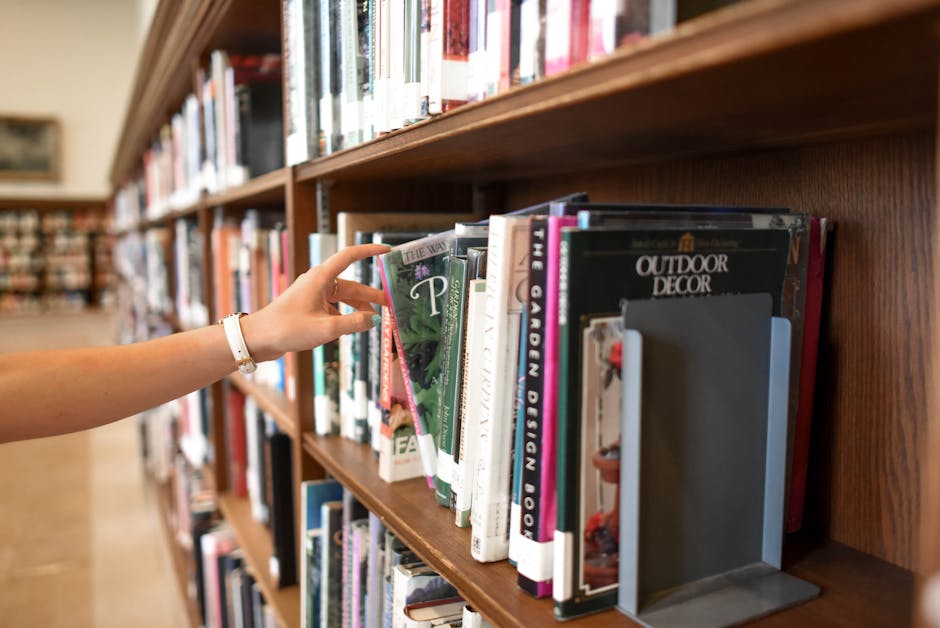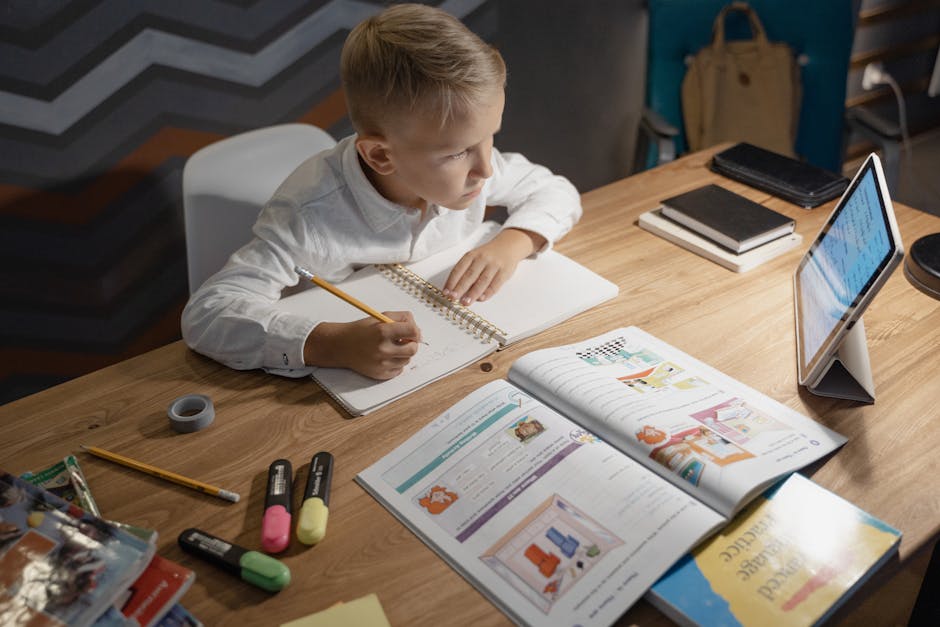How to Select Suitable Gifted Education Books
In recent years, the importance of gifted education has surged to the forefront of educational discourse. Entailed within are unique teaching strategies , specially designed curriculums , and a nuanced understanding of gifted student demographics. For educators in the field, and indeed anyone interested in this important educational sphere, gaining insights from the right sources is paramount. Thus, this blog post will explore some of the most popular and influential books in the realm of gifted education. Each selection dives into the essentials of gifted education from unique perspectives, offering both theoretical and practical insights. Whether you’re an experienced educator, a novice teacher starting on your journey, or a curious parent, these books offer a wealth of knowledge.
Importance of Gifted Education Books

Gifted Education Books are instrumental in facilitating advanced learning for gifted students. The tailored content provokes curiosity , engagement, and deep understanding for these students, fostering their intellectual growth on a higher plane.
Such books can guide educators in catering education that matches the academic abilities of their gifted students too, improving teaching methods significantly . Furthermore, Gifted Education Books also provide parents with insights into nurturing their gifted children's potential outside the conventional education system.
Therefore, the importance of Gifted Education Books cannot be overstressed. They contribute significantly to the realization and maximal exploitation of gifted children's potentials. They also serve as essential engines in driving the advancement of a driven, creative, and intellectually dynamic society.
Top Books for Gifted Education

Engaging the curious, quick, and complex minds of gifted children, requires nuanced strategies and targeted resources.
"Teaching Gifted Kids In Today’s Classroom", by Susan Winebrenner and Dina Brulles, is an excellent resource. This book provides practical insights into differentiated instruction, pacing, compacting, and more.
Next, is "Genius Denied: How to Stop Wasting Our Brightest Young Minds", by Jan and Bob Davidson. This bold book unpacks systemic issues affecting gifted education , and suggests innovative pathways forward .
Thirdly, "Guiding the Gifted Child" by James Webb, offers a comprehensive understanding of gifted children's intellectual, emotional, and social development.
Lastly, "Misdiagnosis and Dual Diagnoses of Gifted Children" by James Webb, et al., is recommended for anyone seeking a deep understanding of gifted children's mental health issues.
These books are invaluable for educators, and anyone interested in tapping the potentials of gifted children.
Gifted Education Books

Selecting suitable gifted education books may seem like a daunting task. However, with appropriate guidelines, this can turn into an enjoyable learning pursuit .
Firstly, consider the age and potential interest of the gifted child. Choose books that match their intellectual level but at the same time, cater to their age-appropriate interests. Remember, the knack should be to challenge, yet not overwhelm them.
Secondly, examine the level of difficulty. While choosing a book too easy may lead to boredom, opting for an overly complex one can result in frustration.
Furthermore, search for books that encourage critical thinking, creativity, and problem-solving capabilities. The right book can truly open up a world of exploration for a gifted child.
Finally, reviews and recommendations can be a helpful tool in narrowing your choices. Don’t be afraid to seek advice and feedback.
Role of Gifted Education Books in Developments

Gifted Education Books play a pivotal role in shaping young minds, particularly those with high learning agility. Their advanced materials cater specifically to these intellectually keen learners, driving them beyond standard educational expectations .
Providing in-depth insight into niche domains, these books stimulate curiosity and foster innovative thinking. Understanding complex concepts becomes simpler, encouraging superior cognitive development .
These books also understand the emotional landscape of these gifted minds, enabling a balance between academic brilliance and emotional wellbeing.
Moreover, mainstream education often lags in meeting the needs of gifted students. Gifted Education Books bridge this gap, offering more intellectually stimulating materials that challenge and engage young brilliant minds.
In essence, Gifted Education Books are not only developmental tools but also catalysts for nurturing talent into exceptional future leaders and innovators. They play an invaluable role in transforming the way gifted students perceive, interact with, and contribute to the world around them.
Strategies for Engaging Gifted Children

Engaging gifted children can be a rewarding, yet challenging endeavor. One effective strategy is letting them embrace creativity. Gifted children often have unique perspectives, so encourage them to think outside of the box. Provide them with enriching activities that will challenge their original thinking. Another strategy is differentiation. This means designing tasks at various difficulty levels to address their different abilities. It can effectively prevent boredom and keep them enthusiastic about learning.
Also, consider incorporating their interests into learning. If they love astronomy, use space-themed examples.
Lastly, promote independent learning. Gifted children often love exploring topics on their own and this autonomy can foster their potential.
Remember, every gifted child is unique. Strategies that work for one may not work for another. The secret is in understanding and nurturing their individual needs.
Gifted Education Books vs Traditional Books

Gifted Education Books, surely a unique breed. Unlike traditional books, they are specially designed to inspire and stimulate intelligent young minds .
A typical book may follow a common plot, but these gifted books are elegantly crafted with intricate complexity that challenges a gifted learner's intellect. Traditional books aim to feed information, whereas gifted education books aim to ignite curiosity, to encourage questioning, to inspire discovery.
Instead of explicit and direct narration, they create an environment that promotes critical thinking, conceptual understanding, and self-learning. They celebrate diversity, innovativeness, and creativity.
These qualities of gifted education books provide a robust foundation for advanced learners. It helps them to sparkle not just in academics, but in holistic personality development. It's not about better. It's about what better suits our gifted children. They need more than just traditional books.
Reviews and Feedback on Popular Gifted Education Books
Our readers have graciously shared their reviews on some popular gifted education books and we're thrilled to share it with you!
First off is "Genius Denied" by Jan Davidson — the candid portrayal of gifted education has made a deep impression on many of you. The narrative apparently resonates , with comments appreciating the heart-rending stories of gifted children it provides.
Meanwhile, "Emotional Intensity in Gifted Students" by Christine Fonseca has struck a chord with many educators. Your feedback indicates that the book provides crucial insights about emotional challenges faced by gifted students.
Lastly, "Teaching Gifted Kids in Today's Classroom" by Susan Winebrenner has earned plaudits for its practical approach, with readers finding its strategies helpful.
We value your reviews and continue to use them in our pursuit for improved gifted education.
Impact of Gifted Education Books on Teachers

Gifted education books act as potent tools for teachers, impacting their teaching methods significantly. These books offer insights into the unique learning needs of gifted students, relevancy in enhancing the teacher's approach to instruction.
They provide pragmatic strategies incorporating differentiation , compacting, and acceleration that can be easily executed in a mixed-ability classroom, making the teacher’s job more effective.
By studying these books, teachers can gain a deeper understanding of the intellectual, emotional, social, and developmental needs of gifted learners. This enables teachers to integrate effective strategies and create an inclusive learning environment.
Moreover, these books foster professional development , broadening their scope of knowledge, enriching their teaching repertoire and ultimately bettering the learning outcomes of their students.
In conclusion, by leveraging these books, teachers can do a better job of meeting the demands and unlocking the potential of gifted students.
